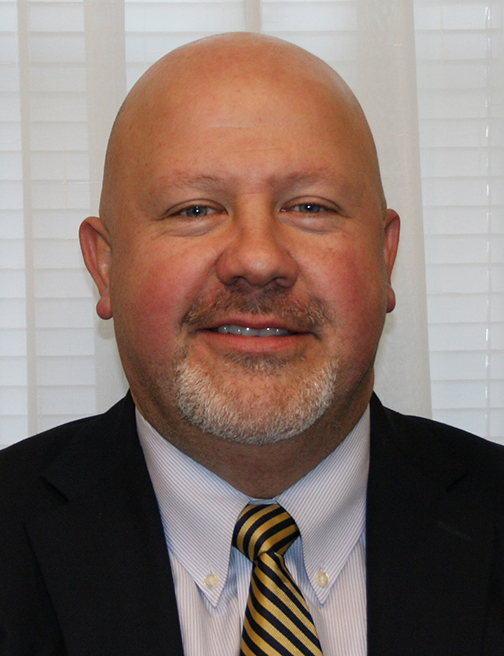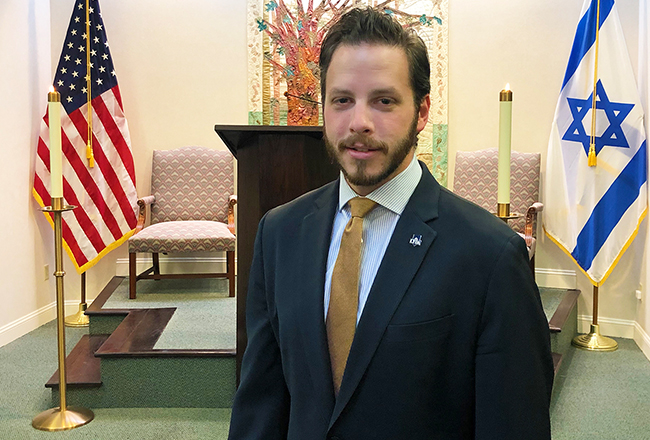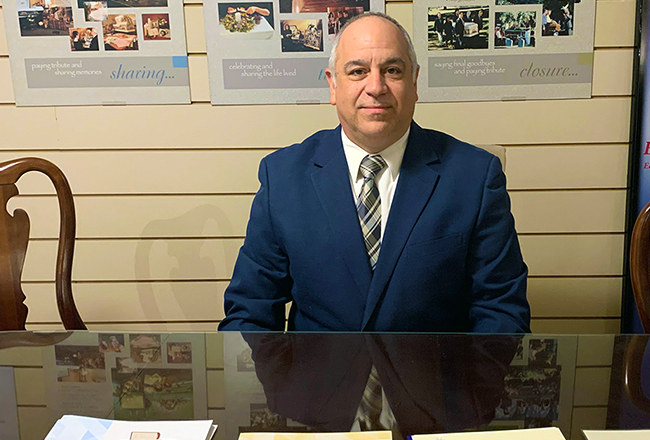As the number of COVID-19 cases continues to rise, much of the attention has understandably been on the state”™s hospitals and other health care facilities, especially when it comes to having an adequate supply of PPE (personal protective equipment).
But the growth in coronavirus-positive cases comes with an unfortunate adjunct: An increase in deaths. And that is where the funeral industry ”“ which, like everything else, has been significantly impacted by the virus ”“ comes in.

“People are still passing away during this global crisis, and families and friends are not able to continue traditional practices to mourn the loss of their loved ones,” said Matthew R. Adzima, secretary and treasurer of Adzima Funeral Home Inc. in Stratford.
The pandemic “has forced funeral homes to alter traditions that have been practiced for hundreds and thousands of years,” he said. “It is very difficult to require families to comply with quarantine requirements in these especially difficult times.
“Modifying these cherished and invaluable traditions takes away from the grieving and healing process for families and loved ones,” Adzima, who is also treasurer of the Connecticut Funeral Directors Association (CFDA), said. “But we understand the importance of ensuring the safety of the families, our staff and their families, and the communities we serve, so we do not think twice about obeying any social distance or quarantine requirements during this pandemic.”
Observing the social distancing recommendations of 6 feet between people ”“ and following directives from the federal Centers for Disease Control and Prevention, the Connecticut Department of Public Health, and many Connecticut municipalities to limit events and gatherings to groups of no more than five people ”“ can add stress to an already troubling time, but funeral directors say they are working hard to provide alternatives, including a perhaps inevitable turn to technology.

“While in-person presence is limited, we are able to invite remote attendance for family and friends to safely join the service from their homes via live stream,” said Jonathan L. Green, who works with his father, Samuel A. Green, also a licensed funeral director/embalmer, at Abraham L. Green & Son Funeral Home in Fairfield. “At such a critical time, there is still a sense of togetherness and comfort from one another when we are forced to remain physically apart.”
That approach also extends to the planning of services, said Edward J. Sheehy Jr., president and co-owner of Riverview Funeral Home in Shelton and Edward F. Adzima Funeral Home ”“ not affiliated with Adzima Funeral Home ”“ in Derby.
“Our two funeral homes”™ arrangement conferences are done by phone or via online meeting platforms like Zoom or Skype,” Sheehy, who served as CFDA president from 2018-19, said. “We follow up our conversations with a series of emails for the selection process of merchandise and to review obituary notices. For any documents that require signing, we can forward through the electronic signature program, DocuSign.”
In addition, Adzima said, many families are looking at holding memorial services for their loved ones after the crisis has passed.

“Initially, we anticipated that memorial services would take place in May and June, but given the continued updates as to timing, we are now uncertain as to when those services may take place,” Adzima said. “Once the guidelines provide for gatherings of this nature, we will schedule the services and resume normal funeral practices.”
The importance to the industry of family is perhaps reflected by the three men”™s backgrounds. Adzima”™s business was established in 1914 in Bridgeport by his great-grandfather, Joseph; Sheehy works at Riverview, which was established by his uncle, Joseph A. Pagliaro Sr., in 1968; and Green and his father work at a funeral home founded in 1948 by Jonathan”™s grandfather, Abraham L. Green.
As for Jewish burial services, which traditionally are supposed to take place within 24 hours of death, Green ”“ who sits on the CFDA”™s Executive Committee ”“ said that, “Even under normal circumstances, there are sometimes delays to services beyond anyone”™s control. We are working closely with the medical community, and local and state governments to keep our traditions while safely navigating this public health crisis.”
Sheehy stressed that protecting employees has become even more important in the current environment.
“Before this epidemic, funeral directors observed universal precautions, utilizing PPE (personal protective equipment) and treating every deceased person carefully in case they died from a contagious decease,” he said. “During these COVID-19 times, our employees wear total PPEs while making removals and during preparations, and we wear masks every time we come in contact with anyone.
“We make sure the building is cleaned and antiseptically wiped down daily,” Sheehy added. “Our office staff works remotely from home, with only the funeral directors coming into the funeral homes. We installed a framed glass shield for our desk that we sit behind when we receive clothing or documents related to the funeral.”
As for the businesses”™ bottom lines, Adzima said: “Funeral directors”™ approach during these difficult times is the same as the pre-COVID-19 period and will be the same in the post-COVID-19 period. We are committed to providing top service to assist families in the passing of their loved ones.
“We are not focused on financials,” he declared, “but rather are constantly thinking of alternative solutions to provide the same opportunities for families and friends to honor their mom, dad, uncle, aunt. cousin, or friend who has passed during this unprecedented time.
“As funeral directors, we know that our commitment to top care and service in this industry is integral to every community and we must adapt to address these drastic changes,” Adzima added. “We are proud of the alternative solutions that we continue to implement that allow families and friends to honor and celebrate their lost loved one. We are focused on continuing to do this until it is safe for all of us to resume ”˜normal”™ life and traditional funeral home practices.”





















